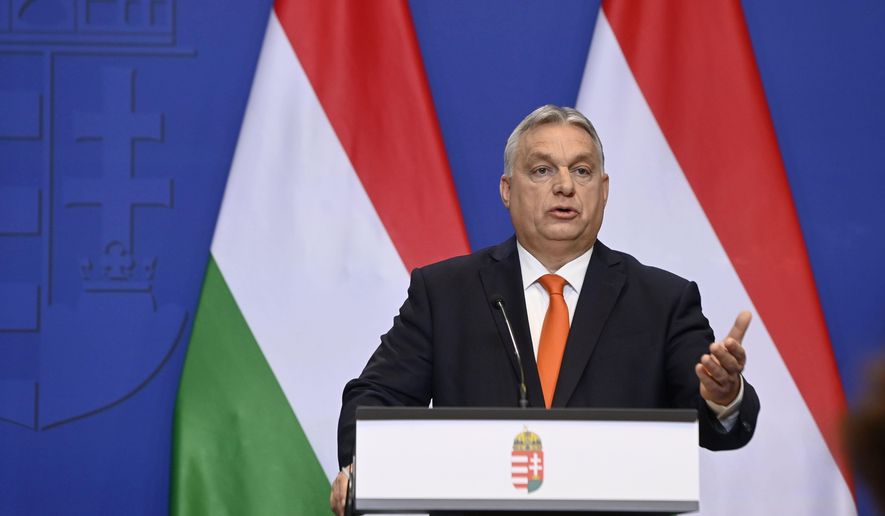Hungary’s Prime Minister Viktor Orban — a conservative leader often accused by left-leaning critics of being Russian President Vladimir Putin’s closest ally inside NATO and the European Union — views the U.S. as one of the top three adversaries of his ruling Fidesz Party.
That’s according to a purportedly leaked CIA assessment among the trove of alleged intelligence documents that have been circling through social media and triggering unease between Washington and its allies in recent days.
The Pentagon and Justice Department have launched investigations into the materials, which the Biden administration has yet to authenticate. The Washington Times has not been able to independently verify the documents.
The purported CIA assessment relating to Mr. Orban was first reported by The Wall Street Journal, which characterized it as underscoring a rift between the U.S. and Hungary and noted that the document raises the possibility of U.S. spying on the Fidesz Party.
The CIA intelligence update of March 2 said Mr. Orban’s inclusion of the U.S. as a top adversary in a Feb. 22 political-strategy meeting “constitutes an escalation of the level of anti-American rhetoric,” according to The Journal, which reported that the document listed the U.S. Embassy as the source for the information.
Mr. Orban had not commented on the report as of Wednesday. It was not immediately clear whether the assessment indicated whom the Hungarian prime minister is alleged to see as his party’s other two top adversaries.
Uneasy relations between the Biden administration and the Orban government have dovetailed with Hungary’s sticky relationship with the European Union. Although Hungary is part of the 27-member European body, its relations with some of the bloc’s major powers have been fraught since Mr. Orban’s nationalist, right-leaning Fidesz Party swept to power more than a decade ago.
Europe’s left accuses Mr. Orban of being an autocrat, and critics of the prime minister say his “illiberal democracy” has resulted in the silencing of dissenting voices and policies that hurt the marginalized.
Restrictions on media and measures relating to LBGTQ issues have come under particular scrutiny. Leftist political figures across the EU warn that Hungary is devolving into a kind of autocracy, with political power more centralized than in Western Europe.
Some U.S. conservatives praise the Orban government as an example of political independence within the vast and predominantly left-leaning EU bureaucracy.
Over the past year, the EU criticisms have become intertwined with frustration over the Orban government’s posture toward the Russian invasion of Ukraine.
Budapest has for months pushed for a peaceful solution to the Ukraine war while trying to ensure that EU sanctions on Russian energy don’t disrupt energy supplies to Hungary.
Hungary gets about 65% of its oil and 85% of its natural gas from Russia.
• Guy Taylor can be reached at gtaylor@washingtontimes.com.




Please read our comment policy before commenting.